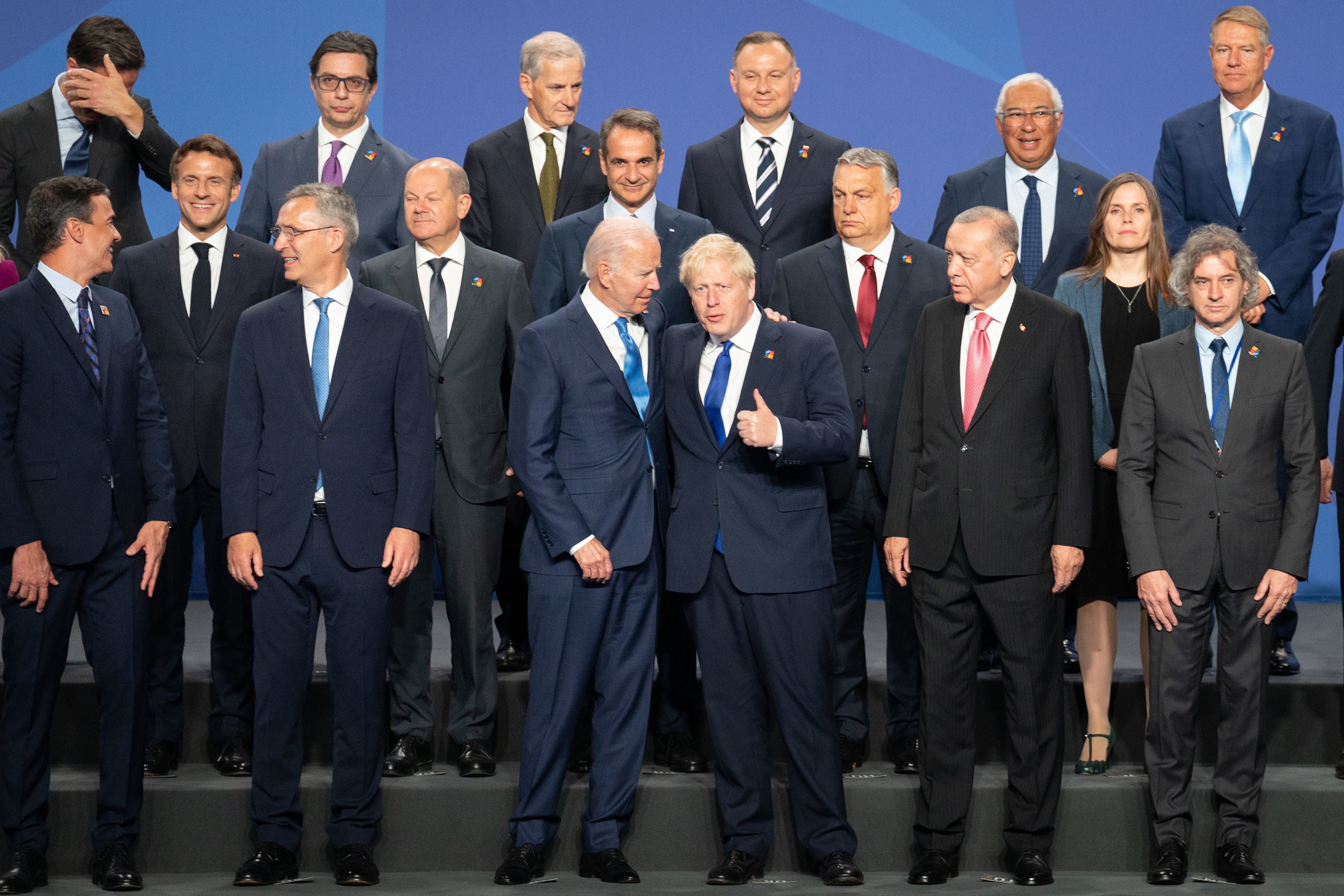It’s hardly unusual to spot a chasm between the well-meaning, brave and inspirational text that emerges from an international summit, and the actual reality of the situation the declaration purports to cover.
This has been consistently true of the various climate summits and their disappointing aftermath over the years and seems all too true of the Nato summit in Madrid. President Zelensky would be well advised to ask to see the colour of the Nato leaders’ money.
Literally so, in fact. Even now, many Nato members spend a pitifully small proportion of their national income on national defence and collective security. Some have long been nowhere near the Nato guideline of 2 per cent of GDP, most notably Germany, a state that could transform the security of east-central Europe if it applied itself (as it is now beginning to do).
Wealthy Luxembourg seems especially stingy; as is Canada. The West has an obvious technological and tactical advantage over Russia and its client allies such as Belarus; but as the Ukrainians are experiencing, it makes up for that deficit with sheer numbers and by targeting civilians. It is also a nuclear power.
Much has been done since February when Vladimir Putin launched his cruel war, but much more will need to be done to help Ukraine contain and push back the invader. At least Nato was still around to assist in that. It now needs to back its ambition with hard cash.
One of the most dispiriting aspects of Nato in recent years was its slide into irrelevance and disillusionment after the Cold War, and its failure to deal with the rise of Isis and the various small wars started by Vladimir Putin. The low point was Donald Trump openly questioning its very usefulness in a world where, so he deluded himself, Russia could be a useful and agreeable partner.
Since then, of course, the world has been taught some harsh lessons, and Nato has, suddenly, become more vital to defence and security policy than at any point in the past 30 years. Russia’s invasion of Ukraine has led to a bonfire of the vanities, and the West is rediscovering the virtues of military strength and the power of deterrence.
Finland and Sweden are now joining, almost all Nato members are eagerly arming Ukraine and sanctioning Russia, and troops and equipment are moving to create a new Iron Curtain, from Tallinn to Istanbul. It is more than a match for Russia’s badly led, barely trained and poorly equipped forces.
This is all admirably reflected in the Nato declaration, which unequivocally states: “We will continue and further step up political and practical support to our close partner Ukraine as it continues to defend its sovereignty and territorial integrity against Russian aggression”.
And yet the Ukrainians are still short of the kind of anti-missile defence systems that would help them prevent or lessen attacks on their shopping centres and apartment blocks. The port of Odesa is full of grain and cooking oil ready to feed the developing world, but food supplies are being blockaded and stolen by the Russians to fund their war machine.
European states are still buying Russian gas, which also pays for the bombs that kill Ukrainian children. Ukraine needs more tanks, more munitions, more intelligence, more of everything to finish the job. The longer it takes to send the supplies, the less chance there is of winning this war. The Russians are making slow but steady advances, and they need to be stopped. There seems some reluctance about recognising that fact.
To keep up to speed with all the latest opinions and comment sign up to our free weekly Voices Dispatches newsletter by clicking here
Increasing the supply of armaments to Ukraine requires not just political will, but money. It may hurt to state it, but then President Trump was right to raise the issue years ago, even if he overstated his case (as ever). It turns out he was also right about how risky it was for Germany to be so dependent on Russian energy.
Although honourable, the effort to habilitate Russia into the international community and become a trusted conventional partner failed, and Russia is now a lethal threat.
Rearmament is terrible but necessary in the face of Russian aggression, and appeasement will not work. There is just the suspicion that in some European capitals the idea is to get President Zelensky to some place where he will accept a Russian offer of ceasefire, and thus permanent occupation of much of his country.
If so, then Nato is heading for a defeat just when, if it held its nerve and its member states made the sacrifices, it is assured of victory. After all that has happened, and with the certainty that President Putin will only be encouraged by such weakness, there can be no betrayal of Ukraine.







Join our commenting forum
Join thought-provoking conversations, follow other Independent readers and see their replies
Comments